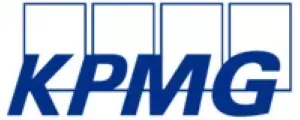Tax Deferral Scheme
Indirect tax has proved to be a major tool used by governments worldwide to cushion the effect of COVID-19 on businesses and consumers alike. On the VAT front, the Government of Malta has announced that VAT credit refunds will be accelerated and that as part of the Tax Deferral Scheme VAT payments may be deferred. On 29 April the Ministry for Finance and Financial Services reported the extension of the scheme for taxes owed up to and including June 2020. The settlement period for the deferred taxes remains to be announced. Deferral for the payment of VAT is not automatic and requires the submission of an online application form by not later than the 15th May 2020. More information about the Tax Deferral Scheme can be found through the link below.
Previously, VAT falling due in March and April were to be settled in two equal instalments with the two quarterly returns immediately following the quarter whose dues would have been deferred. Taxpayers not having quarterly periods were to settle the VAT due in the period covered in two equal instalments as follows: (i) for VAT due in March 2020, by 15 June 2020 and 15 September 2020; (ii) for VAT due in April 2020, by 15 July 2020 and 15 October 2020.
How can you help your own business?
COVID-19 is a stark reminder that 'Cash is King', therefore accounting for VAT in a correct manner is key to ensure that indirect tax supports your business's cash flow management efforts without creating any future VAT exposures for your business. The following are some cash flow management tips and considerations:
- As a result of the COVID-19 outbreak there has been an increase in cancellation fees and 'no-shows' – If you are the business charging the cancellation fees or for 'no-shows', have you considered the VAT treatment associated with these fees? Are you correctly treating foregone deposits from a VAT perspective? If you are the business suffering the cancellation fees, can you still recover any VAT which was incurred in connection with cancelled events?
- Due to the uncertainty associated with COVID-19, some businesses are opting to give clients vouchers which can be redeemed at a later date – As the issuer of the voucher, are you aware of the VAT treatment of vouchers and the difference between a single-purpose voucher and a multi-purpose voucher and the VAT implications associated with each type of voucher?
- With respect to on-going supplies provided to clients, have you checked whether up-front payments by clients should be treated as deposits rather than payment for the actual service? Could the incorrect classification of up-front payment undermine your cash flow management efforts?
- Renegotiated commercial terms – have you considered whether renegotiation of commercial terms could alter the timing of invoicing and the taxable event of transactions and thus influence your business's cashflow?
- Payment of penalties or liquidated damages – If you are entitled to receive penalty compensation or liquidated damages do you need to account for VAT or can a no-VAT approach be secured?
- Damage or loss of goods due to circumstances directly related to the COVID-19 outbreak – Is an input VAT adjustment required by your business and does your business need to consider the provisions of the Capital Good Scheme? In case of suppliers applying the simplification rules relating to the call-off stock procedures, do such simplification rules continue to apply?
- Donations of goods or services - Is your business required to self-charge VAT for any goods/service your business may have donated to support those combating the spread of COVID-19?
- With respect to supplies between related companies, have you considered alternative solutions which could reinforce your cash flow management efforts such as VAT Grouping?
- With respect to account payables, are you paying suppliers before the invoice is issued by the supplier? Could this negatively impact your cash flow management efforts?
- Costs associated with winding down of business – is the input VAT incurred on such costs recoverable?
The content of this article is intended to provide a general guide to the subject matter. Specialist advice should be sought about your specific circumstances.

